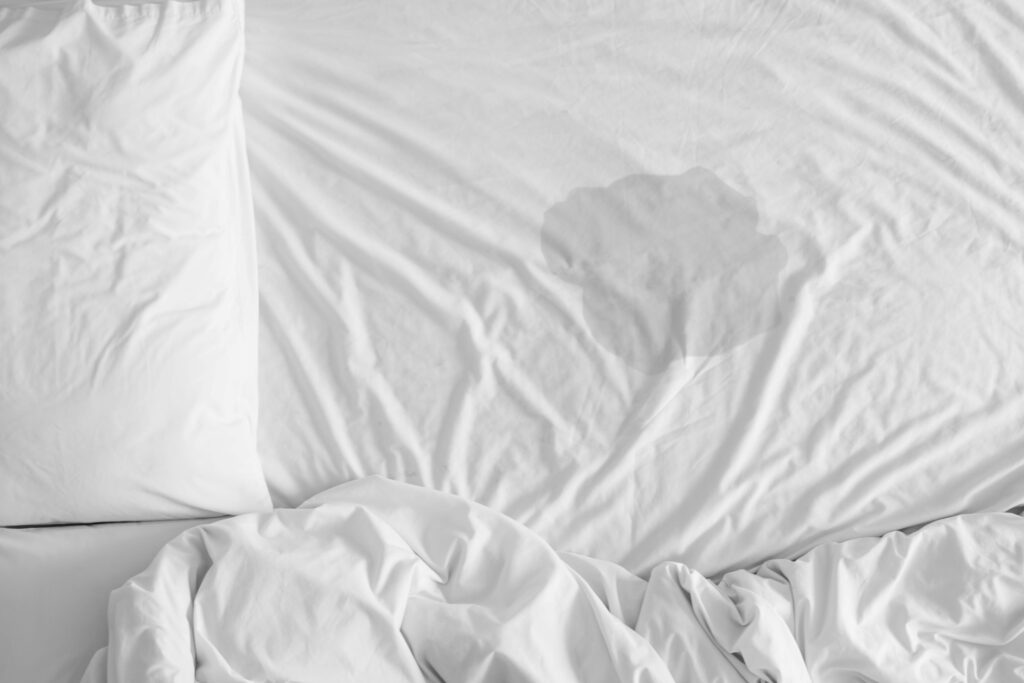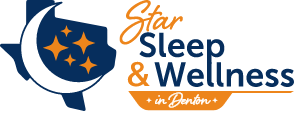
Sleep apnea can impact your daily quality of life in many ways. People suffering from this condition experience frequent interruptions in their breathing that disrupt their circadian rhythms that regulate rest and regeneration. It can result in loud snoring, exhaustion, headaches, and moodiness, whether it’s due to overly relaxed throat muscles, a jaw misalignment, or some other issue.
However, did you know that OSA can also potentially lead to bedwetting? An estimated 7% of adults and 33% of children with this condition also have trouble controlling their bladder at night. Continue reading to discover the connection between sleep apnea and bedwetting and how to reduce its impact!
How Does Sleep Apnea Relate to Bedwetting?
If you frequently wake up to empty your bladder, then you may have nocturia or ‘nocturnal urination.’ About 50 million Americans are affected, so it’s a common though inconvenient condition. The relationship between nocturia and sleep apnea isn’t crystal clear, but scientific studies have linked the two together. For example, it’s been discovered that treating OSA decreases the number of nighttime urinations and that instances increase as sleep apnea progresses.
There are many theories about why, though none are proven. Some experts believe that sleep apnea puts extra stress on the bladder as oxygen levels drop, but it could also be due to the release of hormones known to increase urine production.
Are There Other Reasons for Bedwetting?
Although many people with obstructive sleep apnea experience wet sheets in the morning, it’s not the only possible cause. Other issues that can also lead to bedwetting include:
- Hormonal problems. If your body doesn’t produce enough ADH (antidiuretic hormone) or doesn’t respond well to it, then you’re more likely to have an accident.
- Small bladder. Some people’s bladders feel full at lower volumes, leading to more frequent trips to the restroom.
- Prescription medications. Some drugs, like sleep aids, antipsychotics, etc., can alter your bladder contractions and trigger the need to go to the bathroom.
- Genetics. Bedwetting is often passed down from one generation to another.
- Neurological disorders. Those with multiple sclerosis, Parkinson’s disease, and seizure disorders might have an impaired ability to control their bladder.
How Can I Reduce Occurrences?
If you’re worried that sleep apnea has made it difficult to stay dry at night, you’ll need a sleep study to diagnose the issue. Then, your dentist or sleep specialist will work with you to provide an individualized treatment plan to reduce symptoms. For instance, you might require an oral appliance to keep your jawbone aligned or a CPAP machine to apply enough air pressure to keep your pathways open while you rest.
If you’re tired of getting up in the middle of the night for a bathroom break, calling your provider is an excellent first step toward reclaiming quality rest!
About the Practice
At Star Sleep & Wellness in Denton, you benefit from a team of experts who provide a wide range of services to help improve your sleep cycle. With more than 30 years of combined experience, they can help people of all ages enhance their lives by addressing the underlying issues. They have an in-house sleep lab and state-of-the-art equipment to diagnose and treat your disorder. If you’re concerned about bedwetting, you can request a consultation on the website or call (844) 409-4657.
